One thing that everyone can agree on is that the implications of Augar are ominous for the Arts and Humanities – the (historian) Minister for Universities gave a speech on Thursday which we discuss below, with some reflections on what Augar could mean for Arts and Humanities subjects in universities.
The Minister speaks
In an interesting choice of headlines, the headline on gov.uk is “Science Minister hails the importance of humanities to society”. Of course his full title is Minister of State for Universities, Science and Innovation (and currently also Interim Minister of Stage for Energy and Clean Growth. Like his predecessor , Chris Skidmore has also taken several titles upon himself – Sam Gyimah was famously “minister for students” and Chris Skidmore has called himself “minster for the 2.4% [investment in R&D]” and “minister for EdTEch”. But most importantly, he adopted the title “Minister for the Arts and Humanities”.
So what did this former academic and historian say on this vital topic at the meeting of the Arts and Humanities Research Council? The full speech is here. It is long – and actually quite interesting. It’s a shame really that given all the other turmoil we can’t read too much into it because he may not remain as Minister for any of this stuff for very long (as he admits in the speech). [Did you know? The HE sector has had 5 Universities Ministers in the past 5 years. The last time a Minister lasted more than 6 years in the job was 1902 (source: HEPI – scroll to near end). ] Of course, we may be surprised, if suddenly unity breaks out amongst MPs in the face of the possibility of Nigel Farage as PM, and strong and stable government finally returns…in which case there is a lot of hope for the sector and for the Arts and Humanities in this speech. He starts:
- “As many of you know, I’ve attempted to try and achieve a work-life balance that involves juggling policy and public service, with a personal passion for exploring the past and continuing to write history. I continue to do so…because, like many of you here this evening, I am drawn by that overwhelming desire to understand, to comprehend, how different, how similar, previous generations are to our own, and to understand them on their own terms, for their own sake.
- It is not something that can ever be fully measured, or its value codified by some anonymised data collection processor. Indeed, my own graduate outcome data was only salvaged at the last moment, in the final week before I turned twenty nine, when to my surprise I was elected as the Member of Parliament for Kingswood. That brought to a sudden end any hopes I might have had of my first career path of choice, and dream of entering academia.”
On Augar: “Indeed, even before the report was released, I made clear my concerns over some of the initial leaks, such as the speculation over a three-‘D’ threshold to enter university. And I’m pleased to see that proposal didn’t make the cut. If it had done so, it would have been completely regressive, and would have shut the door on opportunity for so many people whose lives are transformed by our world-leading universities and colleges.” [Yes, but it did make the cut – as a recommendation if the sector does not itself cut recruitment to “low tariff, low value” degrees.]
He makes a very important point which has been bothering your policy team: “But we must be careful not to confuse high-quality with high-value, for they are two different concepts, with two very different outcomes. High Quality is something that we should all aspire to, whether in our work, our research, our teaching….I hope that our reforms to Higher Education, with the establishment of the Office for Students, which will be fully operational from 1 August this year, will help embed and achieve that focus on quality which must be continued.” [In other words quality is something for the OfS regulatory regime to worry about, using TEF and other things as tools to support it.]
And then he turns to value:
- “…data, in its current form, cannot measure everything. And until we have found a way to capture the vital contribution that degrees of social value make to our society – degrees like Nursing or Social Care – then we risk overlooking the true value of these subjects. The same goes for the Arts and Humanities.
- Although some people around us may argue that the contribution of these disciplines to society may be less tangible, their influence is all around us. …Without people who can think outside the box or challenge ideas. All this comes from the critical thinking that knowing about different cultures, philosophies and languages provides us….What might be ‘low value’ to one man, might to others represent money well spent on acquiring knowledge for its own sake, expanding one’s cultural horizons, learning to empathise and reflect upon the human condition, applying it to the challenges for the future.
- There is a place for knowing which subjects have the potential to generate higher salaries in the future– not least for those students who want to make sure they make the right choice of subject and institution for them. For those who wish to know this information, it is also important to highlight the economic benefits of studying creative subjects too.
- And, actually, the story isn’t all negative for those studying creative subjects. The latest Longitudinal Educational Outcomes (LEO) data show us that women studying creative arts, in particular, can expect to earn around 9% more on average than women who don’t go into higher education at all. And the highest returning creative arts course can significantly increase female earnings by around 79%. So, a creative education can certainly be the right choice for a number of people….After all, our Industrial Strategy recognises the importance of the Creative Sector in the UK economy, as being an absolutely vital one.”
And the role of arts and humanities in innovation:
- “Today, we live in a world where around 50% of the UK population have a degree by the time they are 30. Still not enough in my opinion, and certainly not enough if we are to compete as a knowledge economy for the future internationally. As Universities Minister, I’m keen that nobody is deterred from pursuing a particular discipline just because it appears that studying it isn’t for people like them. This is a principle, which applies equally to the Arts and Humanities as it does to Science and Engineering. Thankfully, one mitigating factor to this is the fact that our disciplinary landscape is continually evolving. … multi-disciplinary approaches have become more desired – not just within academia itself, but by businesses, industry and government.
- Part of this is down to our recognition of the fact that we have to tackle the world’s grand challenges now, before it’s too late. And these challenges, themselves, are not constrained within individual disciplinary boundaries. Indeed, the grand challenges we face today are formed at the intersection of the traditional disciplines – where the Arts, Humanities, Natural Sciences and Social Sciences meet…
- The Arts and Humanities are also what makes science ‘useable’. It’s no good developing a cure for a pandemic like Ebola, for example, if you don’t have the anthropologists, the linguists or the lawyers to make the science work on the ground. To bring the product to market. To win the trust of the people. And at a time when trust in knowledge and expertise is constantly threatened by the lapping tides of populism, we need the humanities more than ever to be able to reach out and communicate the value of science and research more than ever….
- …it is the inclusion of the humanities, running like a golden thread through all scientific collaborations and projects that will protect the future of Western science, maintaining its focus on excellence, but excellence for a human purpose.”
What does Augar mean for the Arts and Humanities?
One narrative around the Augar Review is that it has embraced, and even validated the popular narrative about “mickey mouse degrees” and universities filling low cost, high volume courses, putting “bums on seats” to subsidise other activities, doing a disservice to “overqualified graduates” who are “saddled with debt” that they can never repay. This shocking state of affairs means that the government subsidy to higher education, in the form of direct funding and underwriting for the student loan system, in which 83% of students will not repay their loans in full, is misdirected and therefore the taxpayer is receiving poor value for money. And, the argument goes, it is not only the taxpayer who is being ripped off, but students are too. They are being tricked into taking courses that will not lead to better paid jobs but will instead leave them with student loans that will hold them back even further. These are the students who should be doing technical training, apprenticeships. They should be plumbers and bricklayers. They have been told that they will achieve social mobility through education, and it isn’t true.
These narratives were not born with the Review of Post-18 Education and Funding in February 2018. They became sharper once the tuition fee cap was increased to £9000 and were heightened when Labour adopted a policy of abolishing fees. Jo Johnson raised them when launching the Green Paper in November 2015 that led to the Teaching Excellence Framework and the Higher Education and Research Act 2017. In just one example, many of the arguments were rehearsed by Jo Johnson as Universities Minister in a speech in February 2017. It all boils down to value for money.
But there is a terrific confusion here, as highlighted by the Minister earlier on. The talk in Augar is all about value for money subject level. But when people (including previous Universities Ministers (both Sam Gyimah and Jo Johnson) and the current Education Minister) talk about this, they talk not about the value of whole subjects, but of individual courses at individual universities. And so they talk about quality. But they don’t really mean quality either, because they talk about entry tariffs and outcomes and start talking about bums on seats. Which is the big give away. What they really mean is that they believe that there are too many students going to universities to do courses which are not aligned with the government’s priorities. This is about the government wanting to choose not to invest in subjects that they believe do not add value to the economy. Which is why Augar, which is all about money, has kept in the threat of a 3D threshold and/or a cap on student numbers (for some courses at some universities).
See this bit in Augar (page 88): “A small minority of institutions produce graduates who on average earn significantly less at age 29 than their comparators who did not attend higher education. The IFS estimate that 33 per cent of male students, and 1 per cent of female students – together making 15 per cent of all students – attended universities that had either significantly negative or statistically negligible earnings returns when these are averaged across all students at age 29.”
It goes on: “Altogether 34 per cent of courses – accounting for 29 per cent of male students – were shown to have negative returns for men at age 29 (without taking foregone earnings and interest loan repayments into account), suggesting that one in three male students who took these courses could have earned more if they had chosen a different course of study or not gone to university at all.”
Augar looked at the overall cost for the government of the sector – taking into account direct investment and the subsidy given through student loans. For this section, Augar relied on the Institute for Fiscal Studies (IFS) analysis published in March 2019 Where is the money going? Estimating the government cost of different university degrees. They break it down by borrower (i.e. by student, for those that take student loans) and by subject (which takes into account the number of students). On a student by student basis, the most expensive programmes for the government – in terms of loan write-off plus direct grant are Agriculture and Veterinary Science, and Medicine, driven by teaching grants followed by Creative Arts, which is driven by loan write-offs. The best “value” course on an individual basis is Economics, with no teaching grant and loans paid off at a higher rate. Comms and media and other arts and humanities courses sit more in the middle. But when they overlay the student numbers (figure 5), the picture changes, because of the comparatively large number of students studying some of the subjects with fairly large write-offs or subsidy. This chart highlights the overall cost of the Creative Arts, but also brings biosciences, subjects allied to medicine, business and social studies to the top. For this table, Social Studies includes Politics, Anthropology, Human and social Geography, Sociology, Social Policy, Social work, Development studies (see footnote 100, page 110 of the Augar Report). Again the best value is economics, but Veterinary Science and Foreign languages come off relatively well too, because so few students study them.
The Augar report refers to the Graduate outcomes (LEO) data for 2016-17 released in March 2019. It says (pages 87-88):
- “Among men, the earnings premium for an Economics graduate at age 29 is 33 per cent on average, whereas a graduate in the Creative Arts will, on average, earn 14 per cent less than his peers who did not attend university. Among women, the earnings premium for a medical graduate is 75 per cent, but only 9 per cent for those graduated in the Creative Arts.
- The graduate premium for men is low or negative at age 29 for a sizeable minority of subjects. In addition to the Creative Arts, these include English and Philosophy, for which the premium is negative, and Agriculture, Communications, Psychology, Languages, History, Biosciences and Physical Sciences for which it is zero or very small. Women, by contrast, enjoy a graduate premium at age 29 irrespective of the subject they studied, but the premium is small for the Creative Arts, Agriculture, Social Care and Psychology.”
This is interesting but it is not comparing apples with apples. Looking at the original DfE LEO data report you can see the problem – in that report they compare graduates in a particular subject with median earnings for all subjects.
This ignores the choices made by those students. Students who choose creative arts degrees, on average, probably do not go on to high earning careers, based on this data. But there is nothing to say that if they had chosen a different subject, or not gone to university at all, they would have been any higher earning. To establish whether a creative arts degree is better than no degree at all, it could be argued that you would need to compare the employment outcomes of a creative arts graduate against a cohort of people who did not go to university but have the same background profile and prior academic attainment and are doing the same mix of jobs. Then you would know what difference a creative arts degree made to the outcomes for that student.
But those who do not go to university undertake a wide range of careers, and on average they may earn more than those undertaking some degrees at some universities. But that does not mean that those individual students would have earned more if they had not gone to university at all. That’s possible, but it isn’t proved by this data, even though the data is controlled for background characteristics and prior attainment. They might not have become plumbers, or bricklayers, they might still have pursued badly paid careers in the creative arts and individually in fact earned less than the creative arts graduates.
If all students were robotic clones, with the same potential and no personal talent, interest or individual motivation, then they would all do economics at university and become bankers or CEOs. But that would lead to a different problem, because the world does not need that many bankers.
And see this from Tuesday’s Lords Augar discussion: Lord Storey (LD): My Lords, everybody seems to be very much in support of the Augar review. I have real reservations about the funding proposals for higher education. When the noble Lord, Lord Bassam, and my noble friend Lady Garden raised the issue of how the funding model, interest charges, the extension and all the rest will favour the rich and not the poor, the Minister kept saying that we will see it in the round. What does “in the round” actually mean? I agree with the noble Lord, Lord O’Shaughnessy, but we have to be very careful, because there are degree courses that are undersubscribed. We are seeing those courses cut, but they are courses that we need to develop, such as modern foreign languages. Fewer students are doing modern foreign languages because there are fewer studying them in secondary schools. It is the same with music. Music is hugely important to the creative industries, which is one of the major growth industries in this country, and yet we are seeing music in secondary schools, because of the EBacc, being scaled back and back. That has a knock-on implication for our universities, where music degree courses are declining as well. If we took the idea of the noble Lord, Lord O’Shaughnessy, all these courses would be cut, much to the detriment of our country.
I have argued before that using LEO to assess subjects is misleading for lots of reasons including because it only really works if all courses are vocational and all students follow their vocation. If all law students became lawyers, all PPE students became politicians, all history students pursued an academic career (in schools or universities) and all language students became translators, interpreters or teachers then it would be valid to compare. Of course for some subjects there is more of a linear connection. But for many subjects, students will go on and pursue a wide range of careers, using the generic skills that they have learned at university. Generic skills which they may have learned more effectively because they were following a subject they were passionate about.
[In June 2018 I wrote: “[1] Whether your degree pays for itself is a function of a lot of things – such as what your degree is, and where you do it, but also what you did before you went there, where you live, where you work, the state of the national and local economy, what career path you choose now and in the future, your gender, your age, your ethnic group, your family background, your disabilities, how hard you work at university and at work, the culture, policies and success of the organisation you work for, your other life choices…and many more”]
Just as an experiment, I looked at the 13 candidates for the Tory leadership (as at 3rd June 2019).
| University |
Politics/Economics/PPE |
Law |
Other |
| Oxford – 8 |
5 (Gyimah, Hunt, Hancock, Harper, Stewart) |
1 (Raab) |
2
Classics (Johnson)
English (Gove) |
| Post 92 – 1 |
|
|
1 – Hospitality management University of West London (Cleverly) |
| Other |
3
Exeter (Javid)
Warwick (Leadsom)
Newcastle (Malthouse) |
1
Queen Mary (McVey) |
|
So is a politics degree vocational training for a career in politics? Surely it really just shows an interest in the subject. Certainly not all politics graduates go into politics. And these people did not go into politics for the money. Some of them didn’t need to, but they went into it for other reasons. Using Wikipedia I looked at their early careers, and only 6 of them “used” their degrees (and that is stretching the point a bit): Michael Gove taking his English degree and becoming a journalist, and 5 of those with an economics aspect to their degree going on to be bankers, accountants or, in the case of Matt Hancock, an economist.
I also looked at the careers of FTSE 100 CEOs in 2017 and being fairly generous in terms of definitions (apart from other things, the choice of degree subject was more limited, looking at their ages), out of the 53 I could easily find information for, only 31 had a link between their degrees and their early career choices. And these are clearly talented and successful people, 2/5 of whom chose to immediately pursue a career for which they had not been “trained”.
It might be easier to deal with the “problem” if it was defined more honestly. The problem really is that the government thinks that the cost of HE is becoming unaffordable. The effort to encourage students to make “better” choices, by giving them more and better data about outcomes and other things hasn’t really been given a chance to work but also very few people were convinced by it – because students make choices based on a whole range of factors. Even Sam Gyimah (a huge proponent of transparency) said when asked that students should follow their passion when choosing what to study. So instead what we are going to get is rationing. Rationing by subject feels like a blunt instrument, because it leaves it up to the sector to make the “sensible” decision about cutting student numbers when faced with lower fees but it may have odd effects – like making it harder for disadvantaged students to access courses in those subjects which they might have excelled in (and which might have increased their chances of exceeding median earnings in, too). Or just reducing the quality of those programmes as they are delivered at a lower cost.
So if Augar is implemented, could we get a much more sophisticated methodology.? Augar already talks about an institutional Student Premium for disadvantaged students. You could see a world where there is institutional student uplift for those courses that achieve good student outcomes and loan repayment outcomes. Maybe they could be relative outcomes, subject adjusted not just based on the median and adjusted for geographical factors. And maybe they will find a way, as Augar suggests that they do, to measure the social value and adjust for that in the teaching grant as well.


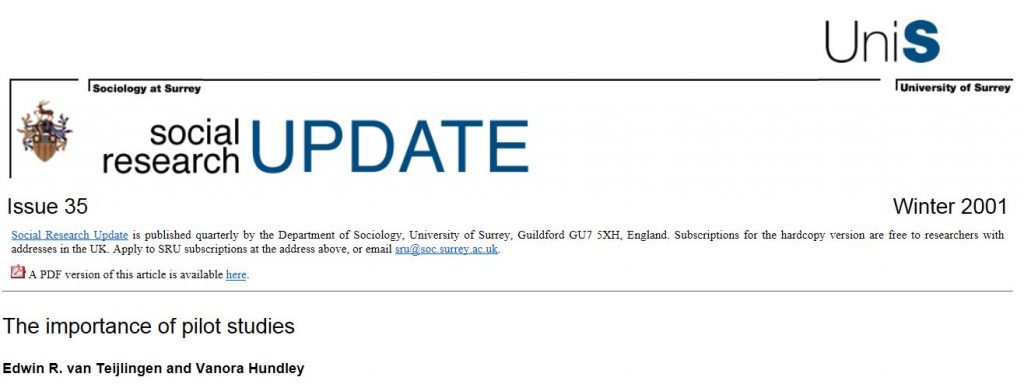
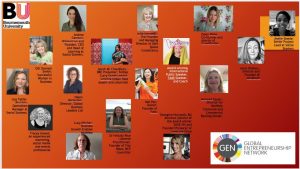










 Speaker: Dr Giuseppe Valenzise
Speaker: Dr Giuseppe Valenzise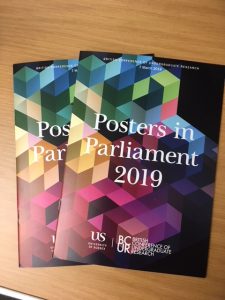
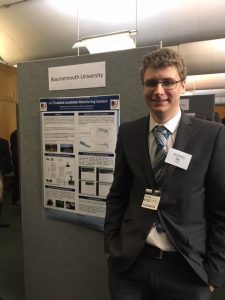
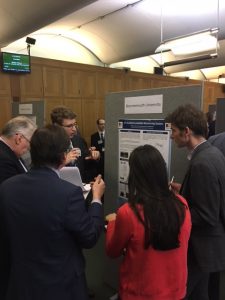
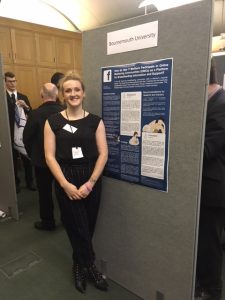
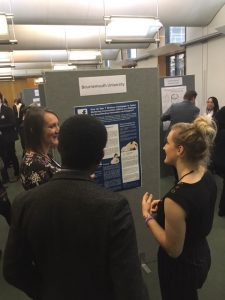

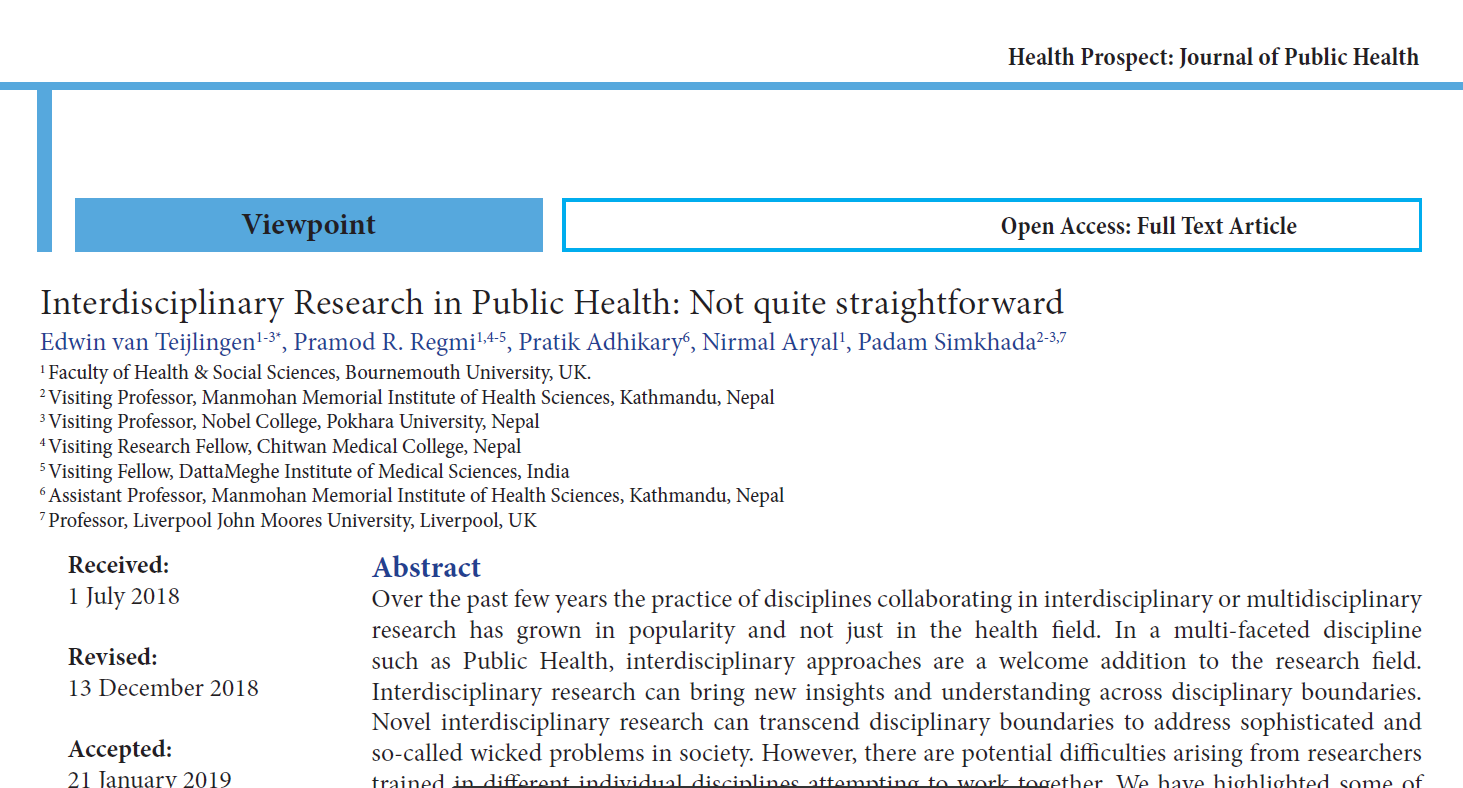

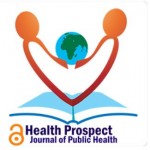
















 REF Code of Practice consultation is open!
REF Code of Practice consultation is open! BU Leads AI-Driven Work Package in EU Horizon SUSHEAS Project
BU Leads AI-Driven Work Package in EU Horizon SUSHEAS Project Evidence Synthesis Centre open at Kathmandu University
Evidence Synthesis Centre open at Kathmandu University Expand Your Impact: Collaboration and Networking Workshops for Researchers
Expand Your Impact: Collaboration and Networking Workshops for Researchers ECR Funding Open Call: Research Culture & Community Grant – Apply now
ECR Funding Open Call: Research Culture & Community Grant – Apply now ECR Funding Open Call: Research Culture & Community Grant – Application Deadline Friday 12 December
ECR Funding Open Call: Research Culture & Community Grant – Application Deadline Friday 12 December MSCA Postdoctoral Fellowships 2025 Call
MSCA Postdoctoral Fellowships 2025 Call ERC Advanced Grant 2025 Webinar
ERC Advanced Grant 2025 Webinar Update on UKRO services
Update on UKRO services European research project exploring use of ‘virtual twins’ to better manage metabolic associated fatty liver disease
European research project exploring use of ‘virtual twins’ to better manage metabolic associated fatty liver disease